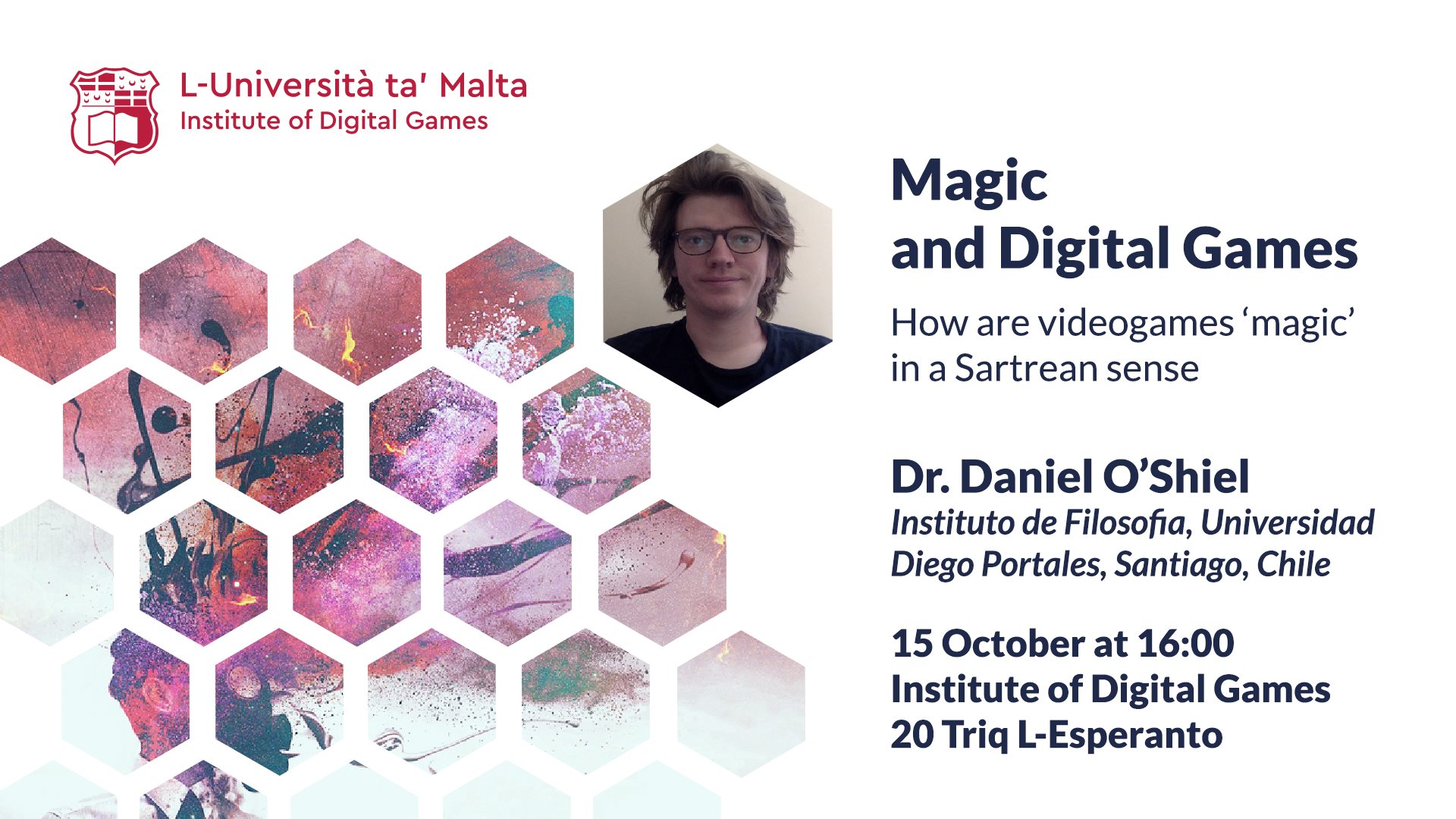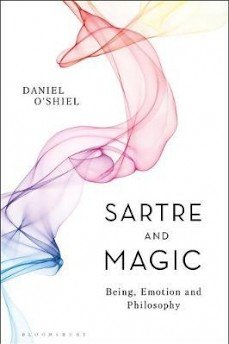
Philosophical Questions in Digital Games: Magic and Digital Games - A Sartrean Approach


The Institute of Digital Games is thrilled to have Dr. Daniel O'Shiel, postdoctoral researcher and teacher in philosophy, currently working at the Instituto de Filosofía, Universidad Diego Portales, Santiago, Chile, speaking as part of our Game Seminar Series on 15 October at 16h00 at the Institute of Digital Games.
Magic and Digital Games - Existentialism in Video Games
This talk will show how digital games are ‘magical’ in a technical Sartrean sense, not least with regard to our emotions and the imaginary, including thoughts on some positive and negative consequences of this. There will be four main steps. The first will explicate Sartre’s multifaceted and technical concept of ‘magic’, not least with regard to our emotions (1938) and the imaginary (1940). The second will then argue how, from a Sartrean phenomenological perspective, when playing digital games we are thoroughly in the realm of the irreal. This means, strictly speaking, that we do not ‘perceive’ digital games. This opens up combinations and experiences that are not possible in the everyday perceptual world, and thereby leads, thirdly, to the idea that digital games often merge the best elements of the perceptual and the imaginary into something I would term the ‘superreal’. This goes a long way to explain their captivating and magical powers, but also, fourth and finally, it can harbour a more negative flipside, namely the tendency to addiction. Here I will explain addiction as a case of ‘hypervirtuality’ of which digital games is one instance and in which magic can play, again, a very dominant role – but this time a rather pernicious one.
Dr. Daniel O'Shiel - Postdoctoral Researcher in Philosophy
Dr. Daniel O'Shiel is a postdoctoral researcher and teacher in philosophy, currently working at the Instituto de Filosofía, Universidad Diego Portales, Santiago, Chile. His expertise is in phenomenology, although more broadly speaking he's interested in many themes from philosophical anthropology, including the nature of many basic modes of experience (not least perception, imagination, emotion and value), philosophy of technology, philosophy and literature, environmental philosophy and feminism.
He is the author of the book Sartre and Magic.

Philosophical Games and Game Research at the Institute of Digital Games
The Institute of Digital Games relies heavily on the different paradigms for game studies, drawing on aspects of philosophy, literary theory, and many more theoritical frameworks. Dr. Daniel Vella and Prof. Stefano Gualeni have recently published on Virtual Subjectivity in Techne, a leading philosophy journal, where they used the philosophy of Heidegger and Sartre, to articulate an understanding of the existential structure of engagement with virtual worlds. In a practical sense, Prof. Gualeni has made a series of 'thought experiment' games such as Something Something Soup Something and HERE. These are free, playable experiences and we encourage you to try them out!
Game Seminar Series: From Game Studies to AI and Games at the University of Malta
The Game Seminar Series (GSS) are special academically oriented lectures that are held approximately once a month at the Institute of Digital Games. They are open to the public, but targeted to give University of Malta students supplementary information and update them on current research in the field. Research and education doesn't happen in silos, especially not in the multi-disciplinary field of game design. The Seminars bring together academics, practitioners and enthusiasts with a common love for games of any type: digital, analog, urban, free-form, and can range from the highly technological to the extremely philosophical. There is sure to be something to interest you. If you'd like to be kept up to date on our GSS and other events we invite you to subscribe to our Newsletter below!

